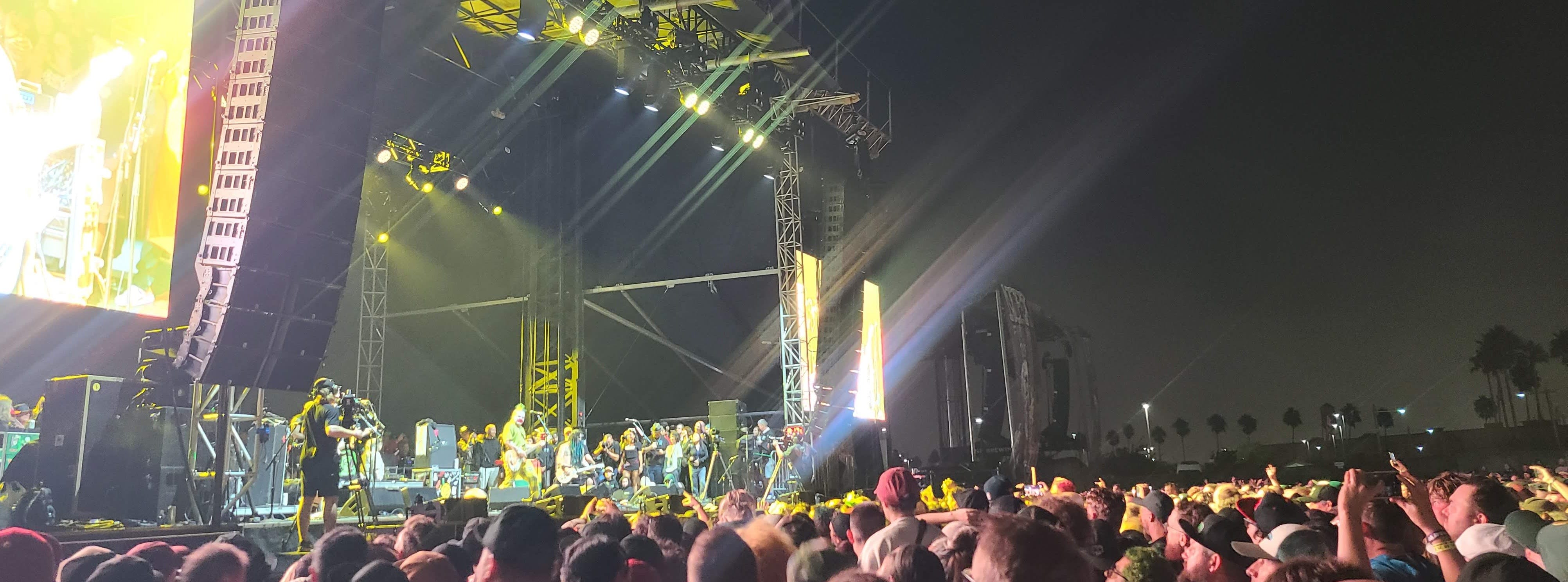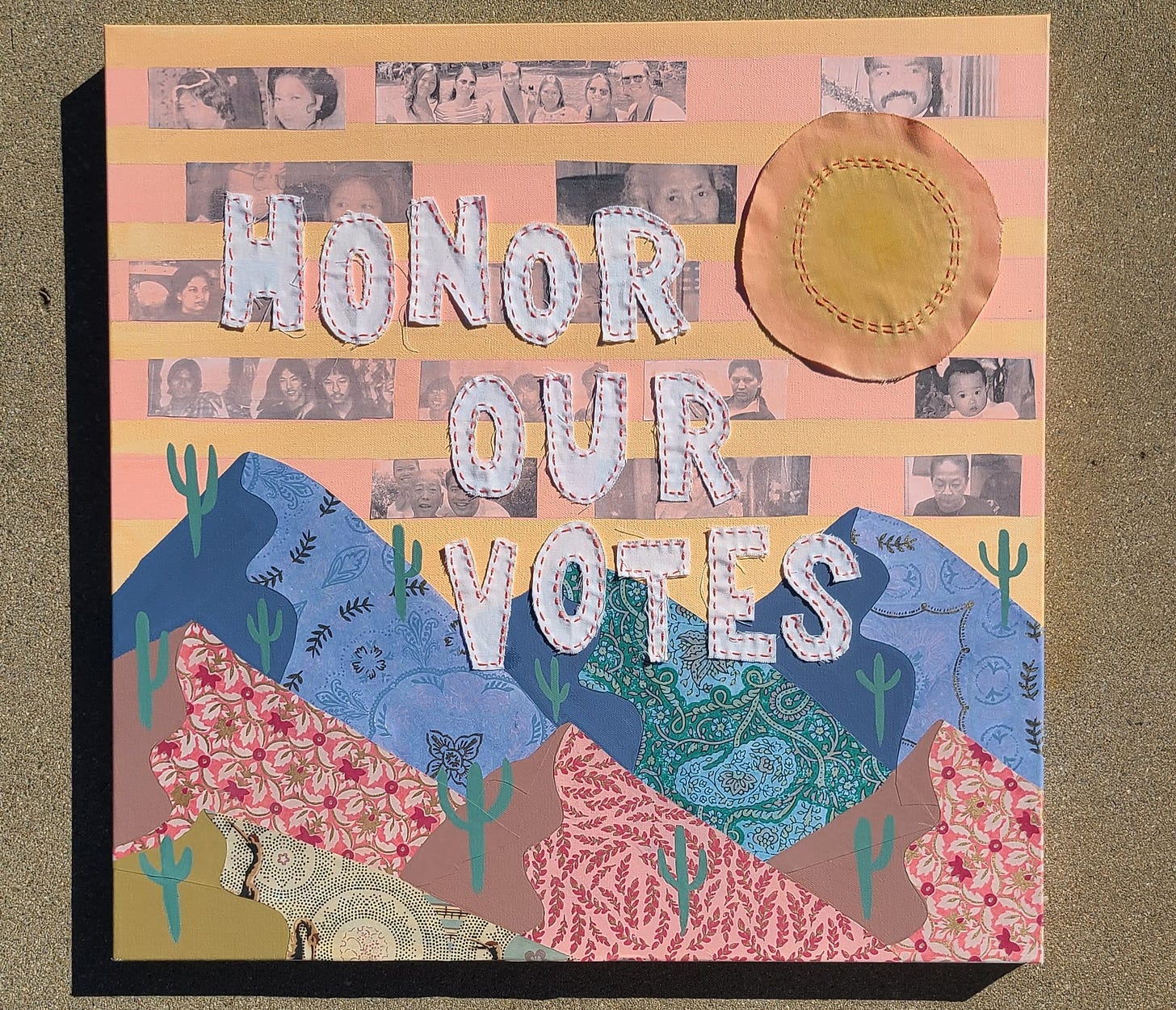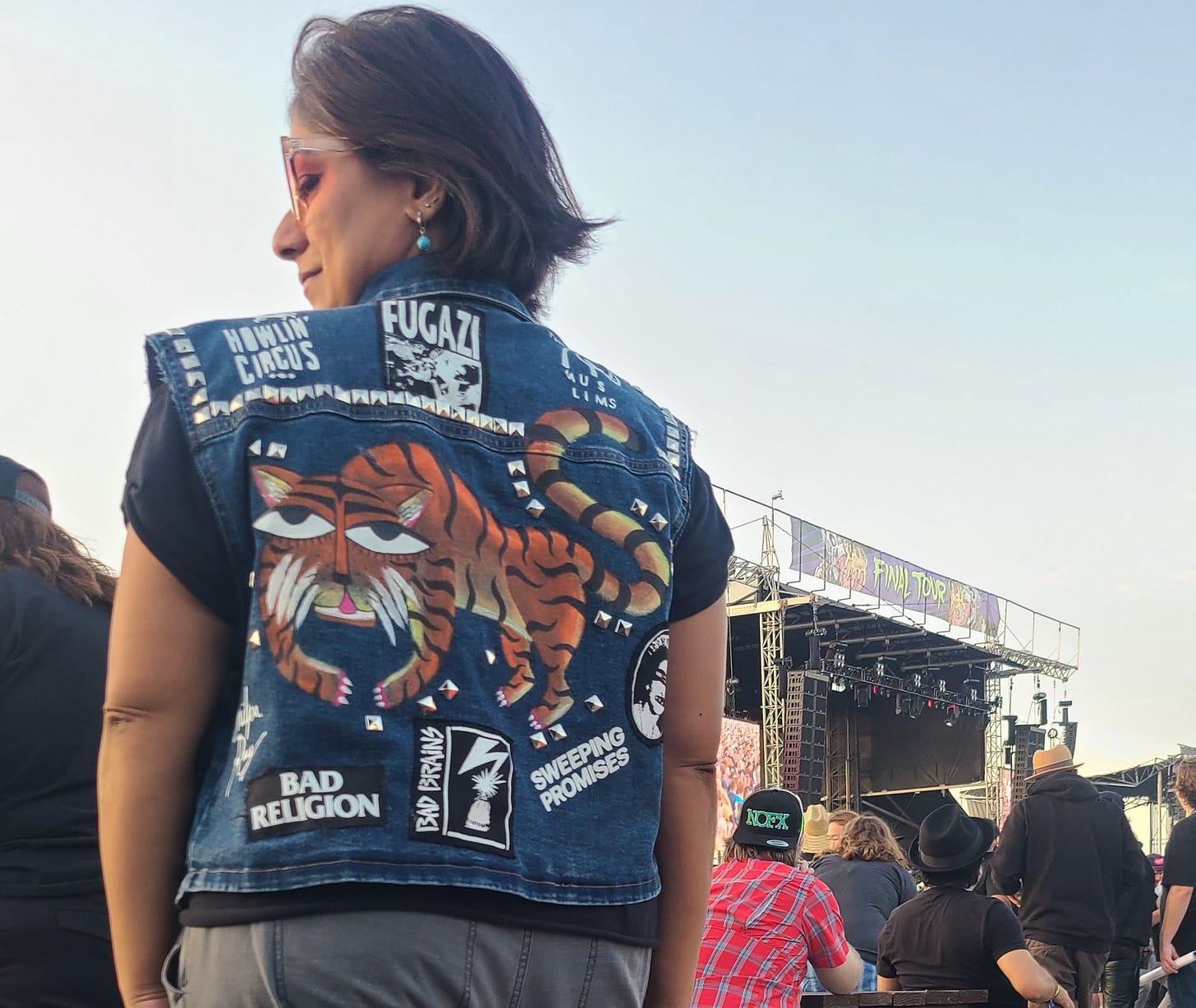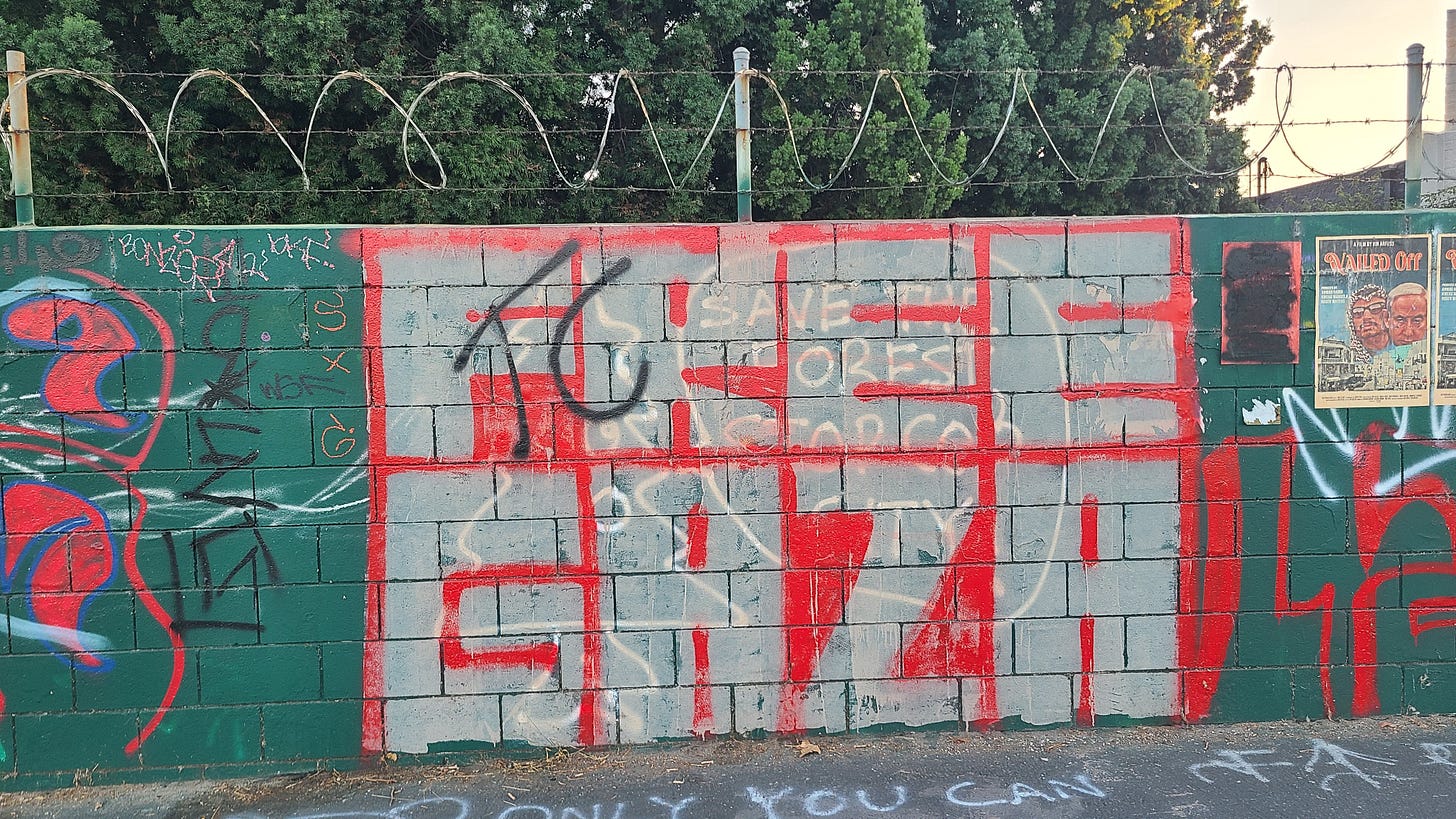Lesson of a Defunct Electoral Organizer
Today is Election Day and I still don't know how to vote.
Welcome to my Substack #26. Soundtrack for this post: Raging Moshpit
1. This is the first election where I’m not working an electoral campaign. I have the 25 years experience, there were plenty of jobs and campaigns I should have applied to, and I JUST couldn’t bring myself to participate. It took me a few moments until I realized that by listening to my gut, I was in a passive protest.
2. If you are reading this, then I don’t need to convince you to go and vote. I have likely registered or re-registered you to vote, sent you a voter guide on how to vote, or provided you some sort of voting rights protection over the past three decades. You might have been moved to tears by poem I read about the power of voting, or listened to a podcast episode about the urgency of voting now or watched a video about some aspect of educating you to be an empowered voter. Maybe you shared a piece of art I helped to fund around voting, or you downloaded an album I produced to get you to vote. Maybe you were a volunteer for me on one of the many campaigns I worked on over the years. Maybe through voting is how we even became friends. I have, after all, been working in electoral politics since 1999, and as of last count, I’ve helped turn out over half a million voters. If you are reading this, you should already be a habitual voter, where civic engagement is already expected and already a part of the fabric of your life.
3. I am not here to convince you to vote. I am not here to discourage you to vote. You are already a voter. So I’m going to write this for you, like me, a voter at crossroads.
Lesson One: Once a voter gets over the speedbump of registering to vote and becomes a habitual voters then they are highly likely to be return voters, especially for Asian Americans. Then, the message isn’t about the importance of turning out to vote, it’s the message about which candidates and policies they should have their vote go to. My job for most of my career has been turning new Asian and Muslim voters into habitual voters. The theory being that this would make it easier for candidates and campaigns to win over the power of the voters with policies and advocacy.
4. NOFX has this one song called “Anarchy Camp” about this summer camp where the rules are reckless abandonment and random acts of dumbness. I think it’s so funny, because I’ve been to so many training camps to teach activists how to organize, and there is this element of being un-organizable. Every training has some group of people that is a rule-breaking faction. The summer I was 24 years old, my white boyfriend founded this summer training camp in Florida to train up environmental activists for the 2004 Elections. I was supporting, and trying to get as many BIPOC folks to participate, and I was going to have a caucus of South Asian youths in the camp. In the weeks leading up to the training, the White environmental organization expressed concern, in me. They thought I was just a girlfriend, and that I going to organize a disruption with all the POC’s in attendance, and the White boyfriend needed to control me. They didn’t want me to attend but the White boyfriend fought to have me attend, tho he didn’t really get it. It was disgusting and painful and I was so young and so in love. That self-sacrificial love. I didn’t organize a walk out – but I did train my first group of Desi women on how to turn out voters. And I learned how dangerous our existence could be.
5. As I was walking on the pavement on the San Pedro Harbor last month, I was overcome with the nostalgia of when lyrics meant something, and music soundtracked a movement. Life had earnest potential. The NOFX flag flapped in the wind, the line for band merch stretched long, and everyone was wearing their favorite punk band shirt and dusted off patchworked and spiked battle vest. It was NOFX’s last show ever, and I had to be there, even though I hadn’t gone to their show in decades. When I was in my youths, all I’d wear were band shirts, cargo pants and a pair of beat up Vans. I’d know all the lyrics to all the songs, that I’d carefully write hand write, because back then, lyrics on websites were not a thing. My first real boyfriend was in college and a Desi vegan punk – he kept a guitar under his bed, had a dyed buzzcut and I’d steal his black NOFX sweatshirt and wear it all the time. My surfer roommate tried to set us up, and we talked on the phone after I read an interview with him in this punk zine. It took a while for us to connect, but then, we fell hard, the last few months senior year. At the NOFX show, it was all nostalgia, and hard to not think about those electric days of youth where punk meant something and our rage had an escape and falling in love was explosive. Walking around with the rest of the middle aged punks, everyone seemed a little more tired, a lot more disenfranchised, and like the pent up rage had aged us all.
Lesson Two: Houseless punk groupies who follow bands across the country can still register to vote – they just need to put down the intersection of where they sleep, if they don’t have an actual address. It still counts. I learned that when I registered voters at Warped Tour and Bonnaroo.
6. I grabbed coffee with the Desi Vegan Punk a couple days after the NOFX show to compare notes – we had gone on different days. Consensus was the actual punk shows were mid and that maybe that retiring was a good idea. He was now a dad, with two kids, a wife, and basic suburban life. He asked if I was married and had kids, and what I was doing with my life. I told him I couldn’t bring myself to work this election cycle – and he couldn’t understand why I didn’t support Auntie Kamala. Her stance on Gaza, of course. “What else are they supposed to do? They obviously go where the money is.” I was flabbergasted. I mentioned, that the campaign, even if I had wanted to work for them, probably wouldn’t want me anyways. I told him the story of how in the 2020 Elections, I was invited by the South Asians for Biden campaign to make a video and within 24 hours that invitation was revoked. I didn’t pass the background check. That likely it was when I tweeted during the 2020 primary debates that Biden wasn’t going to be pro-Israel and not supportive of Muslim issues. (I still stand by that tweet, not at end of his term.) “Well, that’s a bit of blanket statement, don’t you think? He’s still supportive of Muslims.” I responded that’s how twitter worked, it wasn’t a place for nuanced takes. “Listen, these politicians have to respond to money – it’s not like they have the power to do anything else.” I quickly changed the subject. It should be no surprise to anyone then, though it was a surprise to me in that moment, that he is now a Silicon Valley Venture Capitalist.
7. When I founded South Asian American Voting Youth in 2004, we had a very heated board meeting where we debated having the word “citizen” in our mission statement. We were all young South Asians in politics in our 20s and 30s. We had potential. I argued that as a voting organization, we needed to keep the word citizen, and others argued that we need to be reaching out to all South Asians regardless of citizenship. We lost board members over this fight. Now, I have a much more expansive understanding of civic engagement and how immigrants are just future voters. But oh, at that time? It was the most important election of our lifetime.
Lesson Three: Every election of your lifetime will be billed the most important election of your lifetime. And each year you age, the words hold a little less power. Though, the youth hold the power of those words exponentially so. The youth will try to convince you how Democracy relies on this election and how we could never understand the importance of this moment.
8. When I started SAAVY, I was a young 24 years old, pierced and purple haired and convinced I would change the world. I was going to build Brown people power cuz I would not let us be ignored anymore. Older Desis would look at me like was a novelty. They’d tell me to my face that the only reason I was so passionate was because I was still young and naïve. And that as I got older, I’d become more and more moderate and socially conservative. That like all young punks I’d go capitalist in middle aged. That I would lose this fire as I got older. I feared this death knell of my youth – I believed so strongly in these radical values that I consciously rejected even an inkling of this sentiment. But I am jaded, more than I’ve ever been before – but not from going conservative as naysayers predicted in my youth. I’m just tired that despite building community power, shifting the political paradigm, countering the dehumanization, centering the narrative and discomforting the normalization – that despite all this, White Supremacy still triumphs. I am not apathetic (or a rich capitalist), I am just exhausted.
Lesson Four: The people power built by creating a Brown voting block works on politicians until there is a war and their AIPAC lobby funds are at risk of being pulled. And then these politicians with deeply rooted anti-Brown bias show their racism on the outside.
9. The week before my dad was supposed to fly back from Dhaka, Bangladesh, I asked my sisters if they had heard from him. I had just heard they had shut down internet across the nation and our only way to get a hold of him was through WiFi calls on WhatsApp. Each day, the Bangladesh rumor-news got more and more dire -flights were grounded, people were in hiding, and other people were being dying. What had started as an unrest by university students around the unfair quota based job system turned into an uprising against an authoritarian government. Unable to get a hold of my dad, I started going to Little Bangladesh more in the hopes of eavesdropping something on the rumor-news mill. Of course, my eavesdropping Bangla isn’t that great, and mostly everyone was just sad so many youths had died. We didn’t hear from him for the 5 days before his flight, and we were so relieved when Dad landed at LAX safely. He didn’t have much to report, as they were under an information black out – but over the summer the truth slowly trickled out. The July massacre from June 6th to August 3rd were mostly college students and youths – law enforcement’s crackdown killed nearly 400 people. The Prime Minister Hasina fled the country and resigned on August 5th . Everyone Bangladeshi has family in Dhaka that has been effected. But here’s my take away – the youths were able to overthrow an authoritarian ruler in 60 days of uprising. Uprisings CAN and DO work. Can we in America learn these lessons too?

Lesson Five: Voting is never about the vote – it’s about the accountability and using the votes to hold the electeds feet to the flame. And once Electeds are able to ignore accountability, we have lost the citizen power of democracy and maybe this is no longer a democracy.
10. How do I explain the heartbreak that I feel that after a career of turning out Muslim and Asian first time voters, that it wasn’t enough? That the Democratic strategy this season is to woo moderate Republican voters and that White voters still have more power? It’s not a surprise, I suppose, but still heartbreaking to see all the spin and platitude all the same.
11. Let’s put aside for a moment all the Brown people dying overseas and let’s look at Brown people dying in America. When I hear that a Muslim toddler was drowned by a woman in Texas (2024 – Biden), the seven year old Yemeni girl whose throat was slashed in Detroit (Oct 2024 – Biden), the Chapel Hill execution style shooting of three college students by a neighbor (2015 – Obama) or that a 60 year old woman was stabbed on the streets of New York City (2016 – Obama) or the stabbing of two Portland men on the train when they defended two black teenagers against racist and anti-Muslim comments (2017 – Trump) or the Houston road rage incident where a Muslim woman was stabbed (2018 – Trump). When these campaigns frame themselves as the better choice of two evils, the bottom line to me is that people are still being harmed and that hasn’t changed.
12. This year, I am a single-issue voter. I am voting for Gaza. I am voting because I see how American made bombs are being dropped in Palestine and American accented settlers are colonizing homesteads on Brown lands and because there is a bill in government that would give American IDF soldiers for Israel would get American Vet benefits. I am voting as an American and as a Muslim because Netanyahu went to high school in Pennsylvania. I am voting because the Muslims students at my Alma Maters were arrested for protesting to have their institutions divest from the capital gains of war. As Americans we are culpable for this bratty land grab in Gaza and the US government is gaslighting us into numbness. But this means we also have the power, theoretically, to stop these deaths. And we can do that with our vote. But it will take much more than our vote.
13. Today is Election Day and I still don’t know how I’m voting for the President. I have voted for a Democratic President my entire life. I believe in the importance in voting third party but I’ve never actually been won over by any of the other political parties. I switched as an official non-partisan voter in the 2012 for this reason. I thought by today, I would know what to do to, but I still don’t.
14. For the past year, I’ve thrown myself into my South Asian American Radical History Map of Los Angeles project. It’s been the best way to disassociate from the present and the impending dark future by throwing myself into the history of the past. Because in my weird way, I feel like if people only knew their radical history and the struggles that got them here, then they would understand. This history, it’s tactile, and immovable. It’s easier to tell a narrative about past facts and apply meaning to make us feel better. Historically, South Asians were able to have citizen power in the 1900s depending on the city and their racialization and their military servitude. It was the 1923 Supreme Court case with Bhagat Singh Thind, where he fought for the same rights as White people and lost, that federally all South Asians lost their right to be a citizen. At the intersection of Olympic Blvd and the 110 Freeway, in 1942 Dalip Singh Saund founded the India Association of America, which would head up the campaign to give South Asian Americans the right to vote. The four year campaign led to the passing of the Luce Cellar Act of 1946, which gave South Asian Americans the ability to naturalize and vote.
Lesson Six: Our ability to vote as South Asian Americans, as Muslim Americans, as women, was a long-fought fight. People in the past fought for our right to vote, and we should not take that lightly.
Lesson Seven: Laws are just made up by people, and only hold as much power as the people that agree to believe in those powers. Laws can change. And the only constant is change.
Lesson Eight: Our present in the future’s past. We are making history. So, how do you want this history to be remembered?






Bonjour Taz,
What a nuanced and thought-provoking essay. I, too, have become an almost single-issue voter. Pro-choice is #1 for me. Close second is every other value/issue that makes us stronger and better human beings. I have been horrorified by 10.7 AND our government's support of Israel's annihilation of Palestinians and, now, Lebanese people. I think DJT makes a strong case for how dangerous he is every time he opens his mouth. And his goon squad of spineless Republican senators and congresspersons are just as dangerous - probably moreso. I voted for Kamala, Tammy, and every other Democrat running for office in Wisconsin. We are a swing state so I feel strongly that we Cheeseheads who lean Blue must vote Blue. Huge hugs. Q